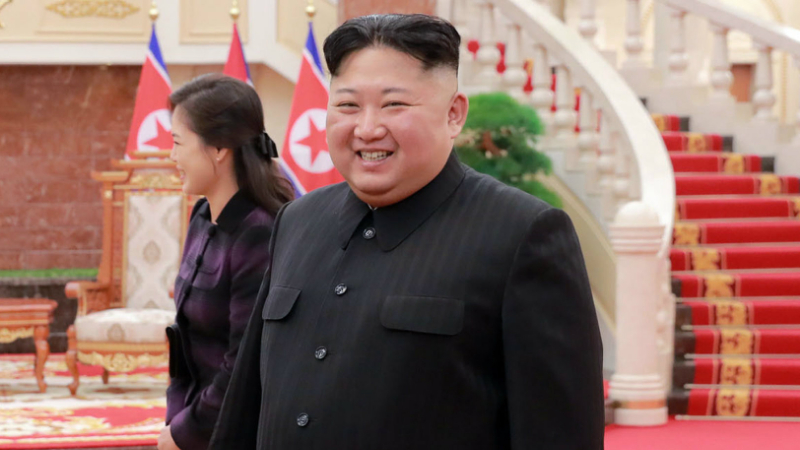Jeju, South Korea: North Korea fired several short-range projectiles off its east coast on Saturday in a move likely to raise tensions as denuclearisation talks with the United States remain stalled.
The North fired the projectiles between 9.06am and 9.27am from near Wonsan, a coastal town east of capital Pyongyang, the South Korean military said in a statement. They flew 70 to 200 kilometers (about 43 to 124 miles) before landing in the sea between North Korea and Japan, the statement said.
An earlier statement from the military said the North had fired a single missile, but the later statement used the vaguer term “projectile.” The military has used that term in the past to describe North Korean missile launches when it was too soon to determine exactly what kind of missile had been deployed.
“We are aware of North Korea’s actions tonight,” the White House press secretary, Sarah Huckabee Sanders, said on Friday night in Washington. “We will continue to monitor as necessary.”
A Pentagon spokesman, Chris Sherwood, said officials there were looking into the launch and were not yet able to confirm anything.
A missile test would be the North’s first since 2017.
In mid-April, North Korean leader Kim Jong Un attended a test of what the country called a new type of “tactical guided weapon.” That, along with Saturday’s test, signalled that Kim intended to escalate tensions in an attempt to gain leverage with the US.
Mike Pompeo, the US secretary of state, spoke by telephone after the launch with the foreign ministers of South Korea and Japan. Kang Kyung-wha, the South Korean minister, and Pompeo agreed to respond “with caution,” her ministry said.
In February, Kim met for the second time with President Donald Trump, hoping to win relief from sanctions in return for a partial dismantling of his country’s nuclear weapons facilities. But that meeting in Hanoi, Vietnam, collapsed after Trump refused to lift sanctions until North Korea relinquished all its nuclear weapons.
North Korea has since vowed not to buckle under international pressure even if its people have to survive on “water and air only,” state media said, and it has repeatedly said it would find “a new way” to defend its national interests if Washington did not ease sanctions. Analysts have speculated that the North might resume weapons tests.
“Clearly, Pyongyang is frustrated with the conclusion of the recent summit with Washington in Vietnam that did not produce any breakthrough,” said Harry Kazianis, director of the Washington-based Center for the National Interest. “It also seems clear that North Korea is angry over what appears to be a lack of flexibility in the Trump administration’s position on relieving sanctions, sticking to a policy of ‘maximum pressure.’”
After the Hanoi negotiations collapsed, Kim and Trump went home empty-handed but agreed to keep talking. Kim later said he would give the United States until the end of this year to come up with viable terms. Trump and Pompeo have both said a third summit would be possible. (The first summit talks were held in Singapore in June 2018 and ended with vague, broad promises.)
Kim has pushed for a gradual, step-by-step approach to denuclearisation, where each nation would make a concession that would be met with one of similar weight by the opposing side. But Trump’s top foreign policy officials — John Bolton, the national security adviser, and Pompeo — have argued that that approach is flawed because previous administrations had tried it, only to see North Korea continue its development of nuclear weapons. North Korean officials say they do not want Bolton or Pompeo involved in future negotiations.
US experts estimate that North Korea has 30 to 60 nuclear warheads, and they say it might have an intercontinental ballistic missile capable of hitting the continental United States. Its conventional artillery weapons could also decimate Seoul, the capital of South Korea.
The launch on Saturday did not violate Kim’s moratorium because it did not involve an ICBM, but US officials were sure to be concerned.
“We should keep in mind that Kim had only pledged to not test nuclear weapons or long-range missiles,” said Abraham Denmark, director of the Asia Program at the Wilson Center in Washington. “So while this latest test would not technically violate Kim’s pledge, it does raise questions about how much President Trump will tolerate, and how far his trust of Kim Jong Un can stretch.”
c.2019 New York Times News Service











